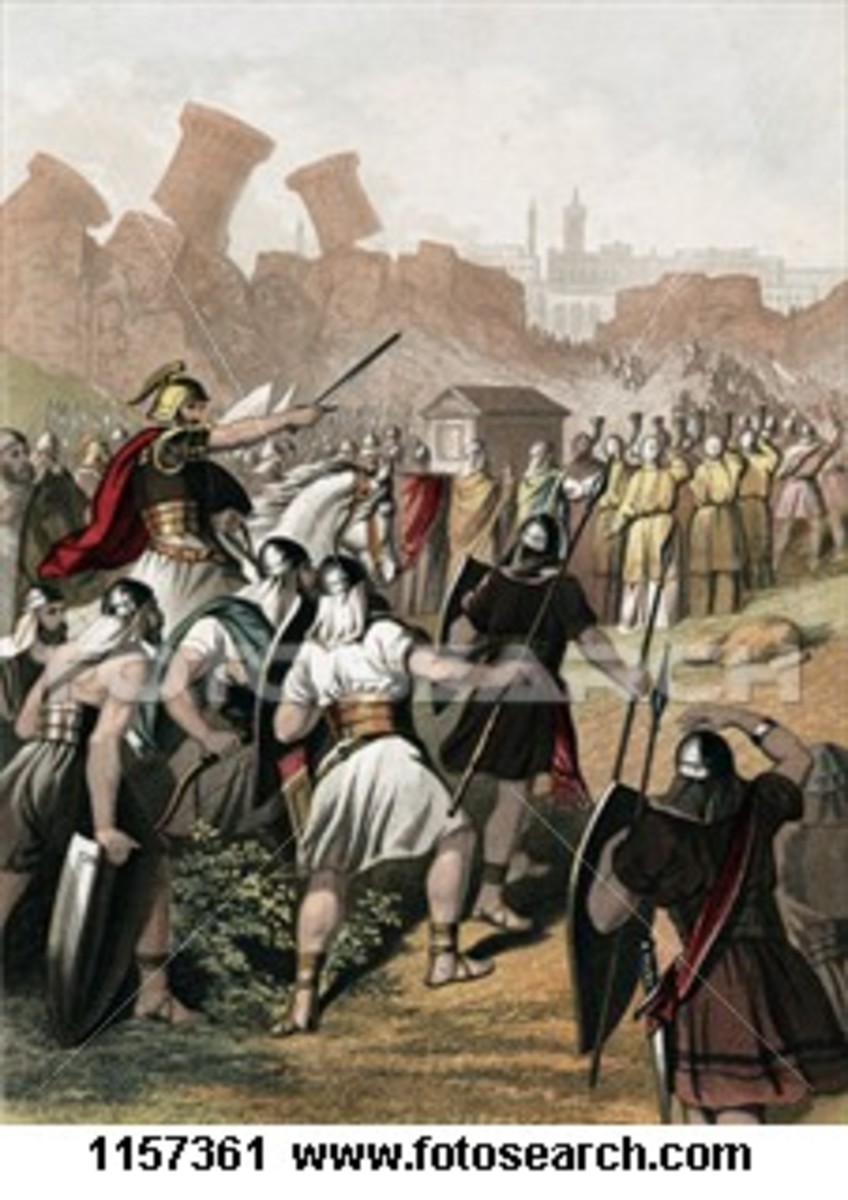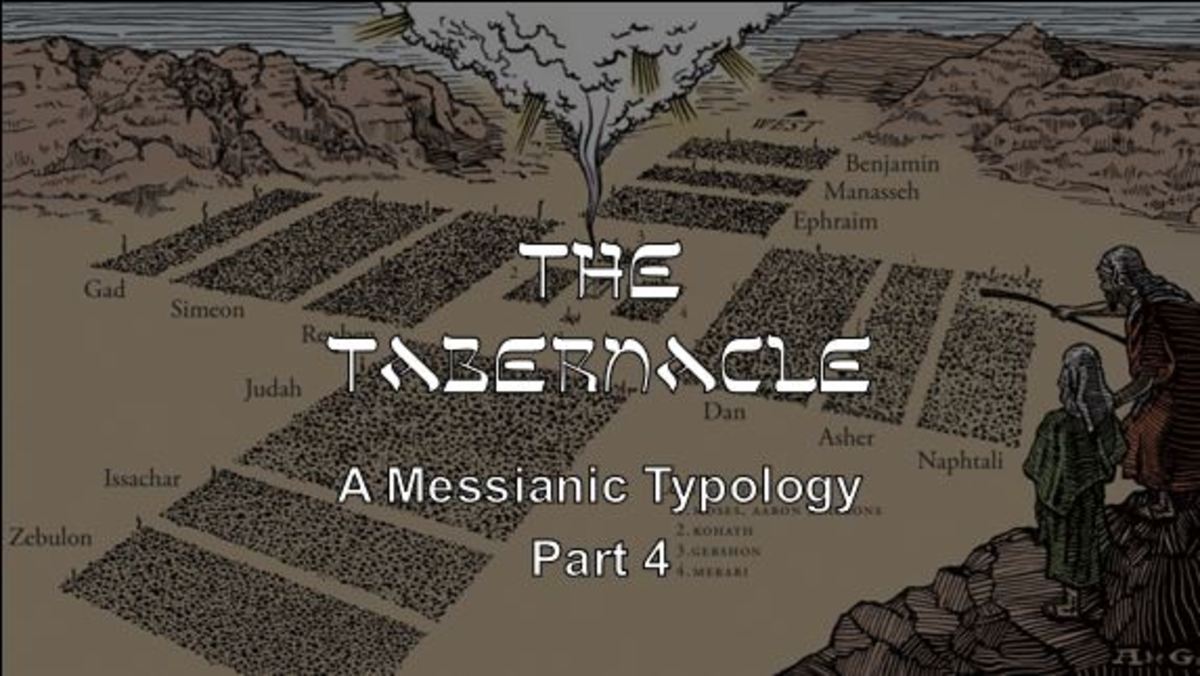Bible: What Does Joshua 4-7 Teach Us About the Consequences of Obedience and Disobedience?
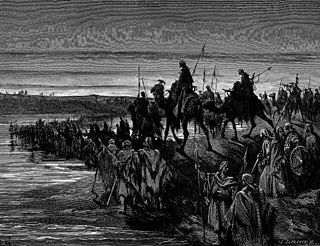
A Reminder of God's Power
view quiz statisticsTwelve Large Boulders
Joshua had earlier commanded each tribe to select one man for a certain unspecified task (see 3:12); now God reveals what that task is.
The chosen twelve should carry one large stone from the midst of the Jordan to their new camp "in Gilgal on the east border of Jericho" (vv. 1-3; cf. v. 19).
These boulders, Joshua explains, will serve as a sign to future generations: a reminder of what Yahweh did to the waters of the Jordan (vv. 4-7).
After the men dutifully obey, Joshua sets up another twelve large boulders where the priests had stood in the midst of the river (vv. 8-9).
[Note how the writer uses repetition as a mnemonic device].
Joshua records that three separate groups crossed the Jordan: the people (v. 10), the priests (v. 11), and the armed two and one-half tribes (v. 12).
This latter assembly of warriors—about 40,000—led the way onto the plains of Jericho (v. 13).
When all had been accomplished according to Joshua's words—the waters having returned to their place after the priests left the river—the people highly respect him (vv. 14-18; cf. God’s words in 3:7).
Once established at their camp at Gilgal on Jericho’s eastern border (v. 19), Joshua assembles “the children” and reviews with them what they should tell their grandchildren about the significance of the stones (vv. 20-22).
His generation should use the Sea of Reeds crossing, and the present generation the Jordan River miracle, to testify to the world about God's power and to remind themselves to fear the LORD (vv. 23-24).
[Prone to forget God's wonderful benefits toward us, we oftentimes need a visible sign of just one of His works to jog our memory].
The Commander of the LORD's Army
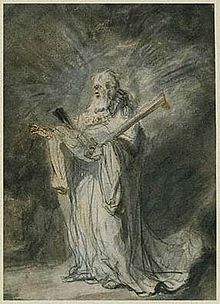
Joshua 5
Serving as a transition between "this side of the Jordan" and Gilgal events, verse one recounts the reaction of the pagan kings in the new Land to Yahweh's latest wonder (cf. 2:10-11 for their reaction to the Sea of Reeds and wilderness victories).
Before God could fulfill His promise to give the Land to Israel, however, the warriors needed to undergo some delicate, painful surgery.
While they were wandering in the wilderness for forty years, their fathers had neglected (probably through disobedience) to circumcise their male children.
Therefore, Joshua leads others to perform the operations at Gilgal, and they all remain there until everyone heals (vv. 2-8).
[Circumcision represents a sign of the covenant between Yahweh and His people; see Genesis 17].
In Gilgal, Israel celebrates the Passover on the fourteenth of Nisan, and eats the Land's produce for the first time on the fifteenth.
Their everyday sustenance while in the wilderness –manna—ceases to fall from heaven on the sixteenth, signifying that from that time forward they would eat the food which the Land produced (vv. 10-12).
Shortly thereafter, Joshua encounters the Commander of the Army of the LORD, who appears before Israel's general ready for battle (v. 13).
Once he realizes Who this Man is, Joshua bows down and worships Him (v. 14).
The Man—not an archangel, but a pre-incarnate appearance of the Messiah—instructs Joshua to do what the LORD once commanded Moses to do on Mount Sinai (v. 15; cf. Ex. 3:5).
[We must make proper preparations before launching out on a new endeavor.
God made sure that His people were following His covenant stipulations.
He also wanted Joshua to meet the Commander-in-Chief, so that he would not think that he was alone in the battle].
Jericho
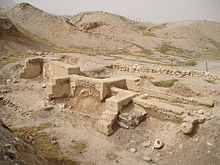
Joshua 6
Yahweh reviews with Joshua the complete scenario of the conquest of fortified Jericho: the seven days of marching, the priestly trumpet blowing, the great shouting, and the falling down of the wall (vv. 1-5).
All that Israel needs to do now is obey God's instructions.
And, by grace, the nation does!
Joshua gives a detailed account of the first day's march—one time around the city—and the trumpeting.
He also admonishes Israel not to make a verbal sound at all until that final day (vv. 6-11).
The people repeat the same procedure for five more days (vv. 12-14).
On the seventh day, however, they travel seven times around Jericho (v. 15).
After Joshua reminds the warriors to spare Rahab and her household (vv. 16-17), and warns them not to take as booty any "accursed things" (v. 18) but to bring all the precious metals into the treasury (v. 19), the people shout, the walls come tumbling down, and Israel utterly annihilates every animal and every human being in the city (vv. 20-21).
The writer especially notes Rahab's deliverance, attributing it to her kind deed of faith (vv. 22-25; cf. Heb.11:31).
As a fitting conclusion to this Conquest episode, Joshua issues an imprecation against anyone who would rebuild Jericho.
[During the reign of Ahab, Hiel of Bethel fulfilled exactly what Joshua had predicted would occur, and consequently paid the heavy price (v. 26; cf. 1 Kings 16:34)].
Jericho's capture brings Joshua great fame (v. 27).
[God has planned our victories.
All we need to do is obey what He says we should do.
Trust that what God says will happen will, indeed, occur, knowing that His power cannot fail.
In addition, the LORD desires that His people keep themselves from covetousness and greed].
Achan
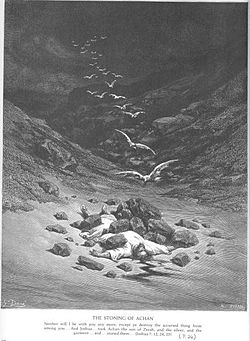
Achan's Punishment
Do you think Achan's punishment is too harsh?
Joshua 7
Great failure often follows glorious victory.
After a word about Joshua's increased fame, the author employs a contrastive waw to preface the story about Achan's sin (v. 1).
[The reader learns the cause of Israel's defeat at Ai before the author relates the account of what occurred].
Joshua had warned against coveting "accursed things" (see 6:18), but Achan still transgresses his directive.
[Notice also that Israel bears corporate responsibility for the trespass of one man.
Thirty-six men die in battle, and Achan's sons and daughters perish with him at his execution].
Perhaps thinking that this conquest business is a "piece of cake," Joshua's spies advise him to send only a small army against little Ai, and the general foolishly acquiesces (vv. 2-4a; cf. 8:3 for God’s plan).
[What a tragic mistake!
Joshua did not bother to consult the LORD about such details, nor did he even inquire about what the next step in the battle plan was].
When Ai defeats Israel, slaughtering a considerable number of warriors and chasing the rest of the army back to Jericho, the losers begin to feel like the pagans once did (vv. 4b-5; cf. 5:1).
Predictably, Joshua and the elders, distraught about the bad news, go into mourning (v. 6).
From Yahweh's reaction to the general's complaint (v. 10), one may deduce that Joshua is here wallowing in self-pity and even blaming God for causing Israel's loss (v. 7).
He seems more concerned that Israel maintain its reputation as a mighty nation than that the LORD protect His name as a great God (vv. 8-9).
[Joshua also seems to think that God may be creating a predicament for Himself that He may not be able to overcome].
At this point, Yahweh lets Joshua in on a secret which he would have known had he consulted Him before any of this fiasco happened: Israel has sinned (v. 11).
Then God delineates the exact details of their transgression, its humiliating results, and the decision He would make if Joshua failed to punish it (v. 12).
The terrified leader, still bowed to the ground, hears Yahweh's exhortation to stand up, then His plan to rid Israel of the offense that involves a tribe-by-tribe, family-by-family, household-by-household, person-by-person examination to find the perpetrator (vv. 13-14).
Once found, this sinner and all he has must be consumed with fire (v. 15).
[Perhaps the LORD commanded this extensive search because many Israelites almost succumbed to the temptation.
He was gently reminding them all that they all came close to falling].
Following this process of elimination on the next day, Joshua discovers that Achan is the guilty party (vv. 16-18).
Deeply grieved, Joshua urges him to confess his error. To his "credit," Achan does not rationalize about his decision or fabricate excuses about his transgression, perhaps hoping against hope that God would show him mercy (vv. 19-21).
But such was not to be the case.
Messengers retrieve the stolen articles and present them before Yahweh.
Israel then takes Achan to the Valley of Achor (cf. 6:18) where they stone him and all that belonged to him, and then burn them to ashes (vv. 22-26).
This account affords several important lessons of application:
(1) We, the church, are in this enterprise together.
If one member suffers or sins, we all experience the pain to one degree or another.
(2) We must guard against overconfidence; we must always seek the Lord first before moving ahead.
(3) We must consider the Lord's reputation as infinitely more valuable and more important to uphold than our own.
(4) We are all prone to fall into traps and to succumb to temptations; Achan just did not resist his.
(5) We may confess our sins and expect God to cancel out the circumstances.
Sometimes He does, but frequently He does not.
We should not presume upon His mercy.
© 2013 glynch1


